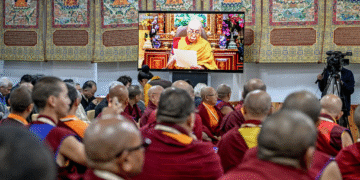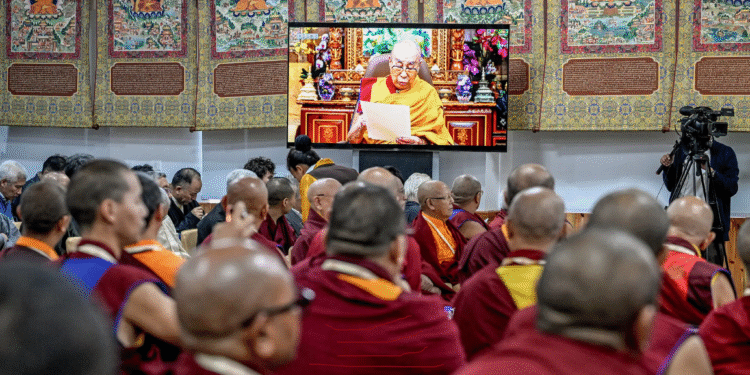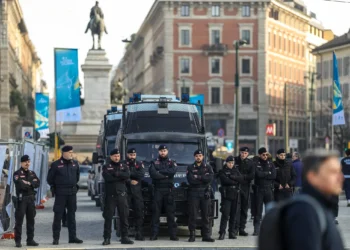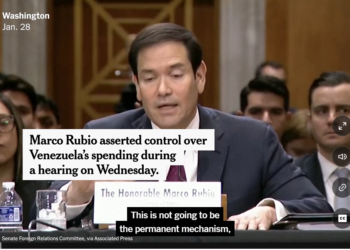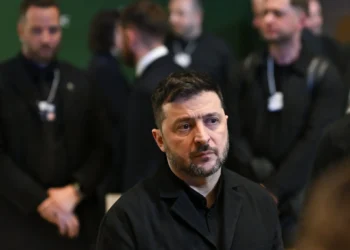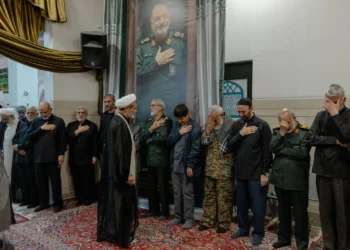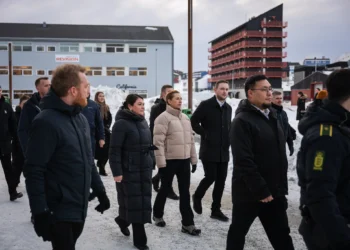The Dalai Lama’s Choice Not to Break From Tradition When Choosing His Successor
The aging spiritual leader Dalai Lama is attempting to stop Beijing from seizing advantage of a vacuum in power. However, there is pressure to maintain the essential tenets of Tibetan Buddhism.
For decades, the Dalai Lama has lived in exile, contemplating how to prevent the Chinese government from taking over Tibetan Buddhism following his passing and putting an end to fight for Tibetan independence.
To deprive Beijing of a target to exploit, he proposed early on that the Dalai Lama’s office be abolished altogether. He then turned his attention to preventing the Chinese Communist Party from appointing his successor. He suggested that he might pass his spiritual abilities to an adult during his lifetime in order to prevent the vacuum that would result from choosing a kid as his reincarnation and successor.
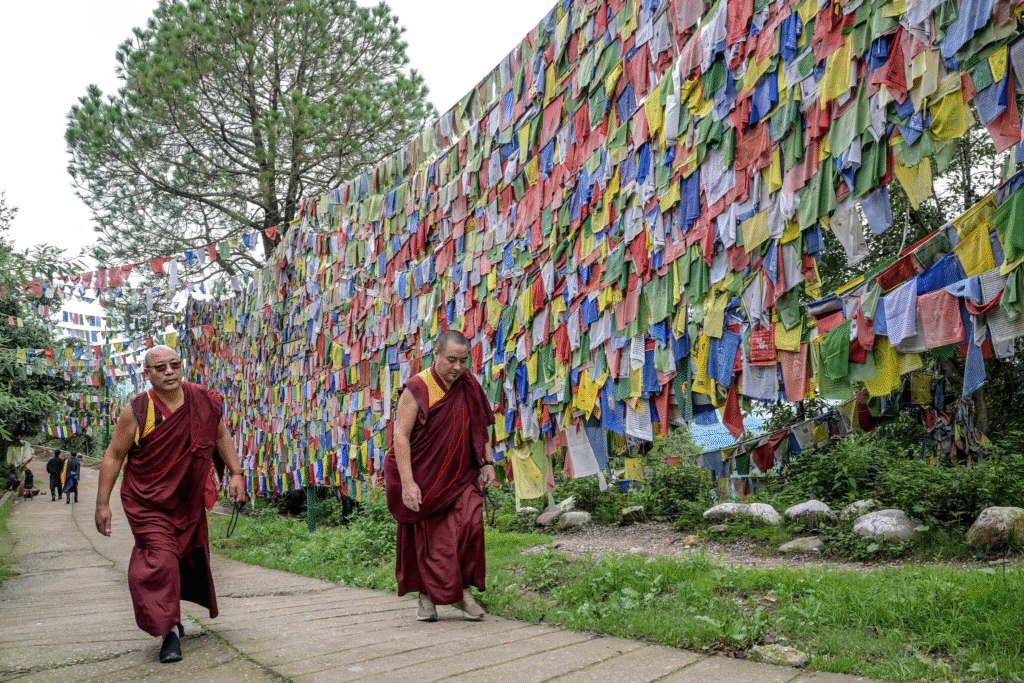
However, on Wednesday, as senior monks entered a highly anticipated meeting in Dharamsala, India, as part of the Dalai Lama’s 90th birthday festivities, he made it obvious that tradition would continue to hold sway.
He stated that the Dalai Lama’s institution would endure. The standard procedure of reincarnation will be used to choose his replacement.
His choice demonstrated the delicate balance that even a progressive Dalai Lama must strike between protecting a fundamental aspect of Tibetan Buddhism and preventing Beijing from exploiting it politically.
It demonstrated the boundaries of his authority to change the organization he has dominated for over 70 years, as well as his realistic grasp of the David-vs.-Goliath battle that Tibetans are engaged in against the Chinese administration.
“The challenge in any religion, but particularly one where you have a leader who is modernizing, is how far you can push your community to adopt a new approach,” said Robert Barnett, a scholar in London.
“Perhaps he felt that the community was not yet prepared to take this new step of succession,” he continued.
However, the Dalai Lama was still attempting to establish boundaries that would exclude an autocratic Beijing, even if he appeared to be shutting the door on certain innovative concepts. He stated that his office has “sole authority” to name the next Dalai Lama.
In a video message to the monks, he stated, No one else has any such authority to interfere in this matter.
His speech, which he read from a piece of paper he held in front of him with huge reading glasses, underscored the collaborative approach he took to coming to a conclusion on the issue of succession.
In spite of its members’ atheism, the Chinese Communist Party, which has made attempts to weaken the Dalai Lama’s power in Tibet, claims that it alone has the right to select his reincarnation.
Following the Chinese Army’s invasion of Tibet in 1959 in an effort to bring the region under Communist Party rule, the Dalai Lama, the 14th person to hold the office, fled China. Since then, he has resided in India, where he has contributed to the establishment of a democracy in exile while also traveling the globe to promote the Tibetan people’s cultural and religious freedom as well as their autonomy.
The octogenarian head is viewed by the Chinese government as a separatist who is pushing for Tibet’s independence, which is home to over six million Tibetans. Since he has been away, Beijing has made an effort to extend government control over some aspects of the Tibetan religious establishment. In addition, it has attempted to assimilate the populace into a single country united behind the Communist Party by wiping out Tibetan culture.
It’s obvious that Beijing might question the choice of the next Dalai Lama. The Dalai Lama appointed the 5-year-old son of a herder as the successor when the 10th Panchen Lama, the second-highest spiritual leader in Tibet, passed away in 1989. China abducted the youngster and his family, and the child was replaced by a monk selected by Beijing; the boy has not been seen since.
The search for a new Dalai Lama has historically started only after the passing of the previous one. To aid in narrowing their search, Tibetan Buddhist leaders claim to adhere to age-old practices of analyzing esoteric visions, clues left by the prior Dalai Lama, and astrology. In the past, search committees would travel across Tibet assessing applicants to see if they exhibited any characteristics that might be considered particularly sacred.
This procedure might last for years. Ultimately, a youngster is thought to be the reincarnation of the previous Dalai Lama. It may take another ten years or more for the child to complete his education and get ready for his future role.
Since the Dalai Lama and tens of thousands of his followers fled into exile, his approach has been influenced by the worry that China will take advantage of that chasm.
In 2011, the Dalai Lama concluded a step-by-step procedure of giving up his political leadership position in the Tibetan exile government, a move aimed at improving the Tibetan movement’s democratic framework. Since then, Tibetan refugees living all over the globe have chosen their political head by direct vote.
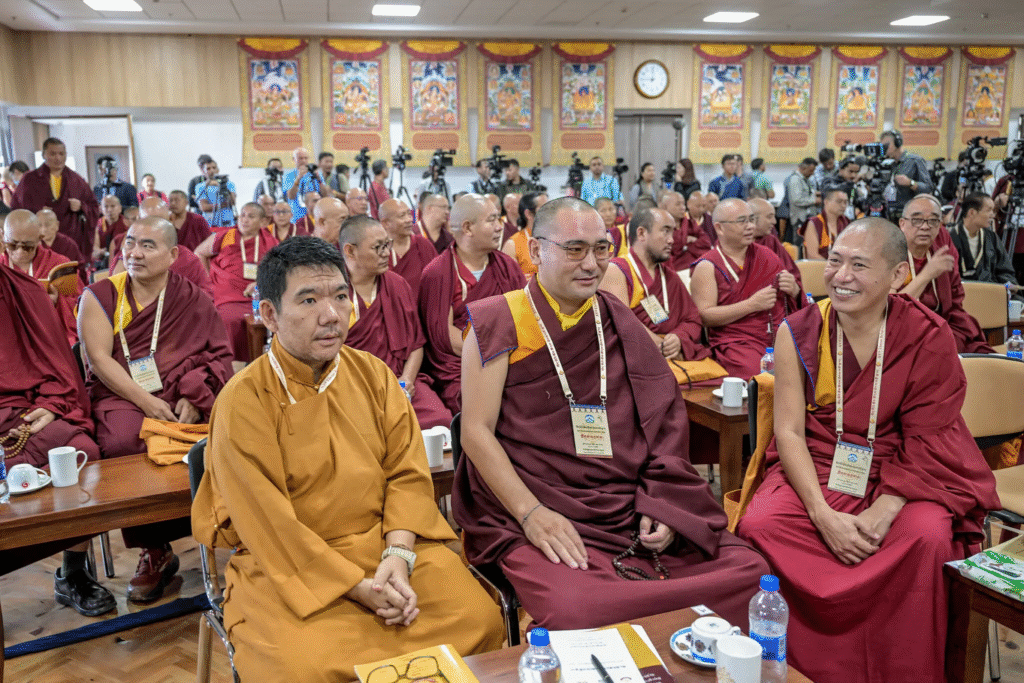
According to his religious title, Samdhong Rinpoche, the Dalai Lama had been considering the trust that will oversee reincarnation issues for decades but ultimately concluded that the Tibetan people preferred to maintain it, said Lobsang Tenzin, the trust’s second-most senior leader.
According to analysts, the Dalai Lama has cultivated an image as a democrat who seeks advice, and that fits with that image. They added that although this method might be in his character, it also contrasts sharply with authoritarian China.
“The message today,” Samdhong Rinpoche stated at a press conference in Dharamsala, is that the Dalai Lama institution will continue that there will be a 15th Dalai Lama after the 14th Dalai Lama, there will be a 16th Dalai Lama.
He didn’t elaborate on how the Dalai Lama intended to safeguard the reincarnation process from Chinese meddling. Additionally, he refrained from commenting on whether the Dalai Lama’s declaration, which highlighted the conventional reincarnation process, now prohibited his earlier ideas about defying established practice.
Samdhong Rinpoche stated of reincarnation, “He will provide instructions when the time comes.”
The Dalai Lama’s strategy for protecting the reincarnation process from Chinese intervention was not revealed. Additionally, he refrained from commenting on whether the Dalai Lama’s recent assertion that the traditional reincarnation process should be emphasized now rendered his previous proposals for deviating from established norms.
Samdhong Rinpoche stated that he will provide instructions about reincarnation at the appropriate moment.
Tenzin Woeser stated, “There is a major consensus in the diaspora that the next Dalai Lama will be from outside China.” The Dalai Lama has stated that his successor will be someone born in a free nation. The trust that handles succession has no authority in Tibet.
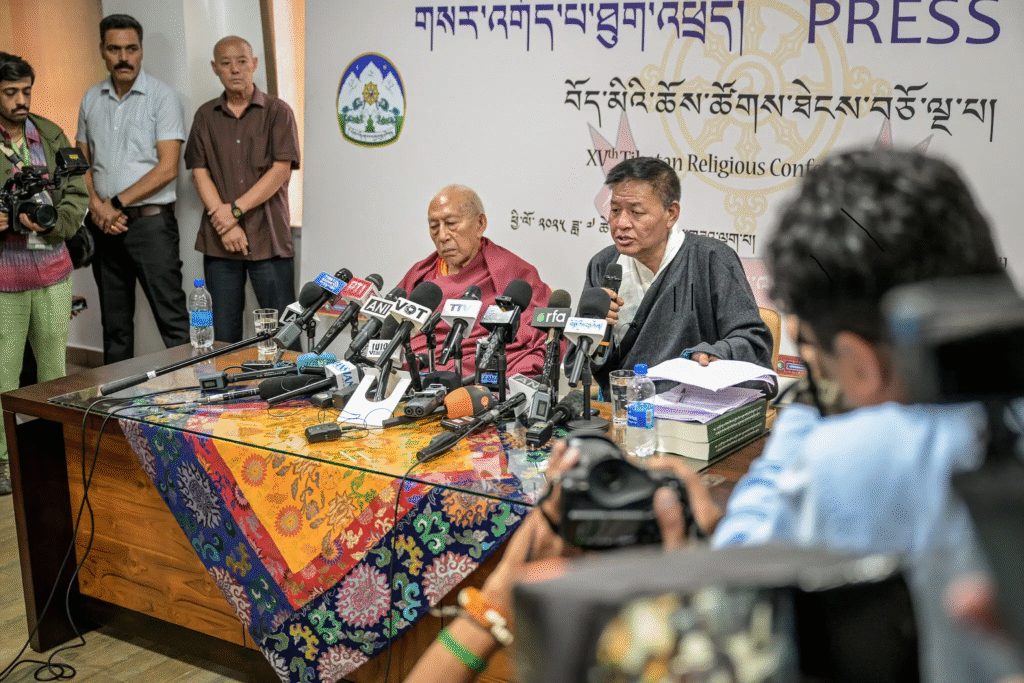
In his remarks on Wednesday, the Dalai Lama made no mention of the subject. The analyst, Mr. Barnett, claimed that this seemed to provide the Dalai Lama with some room for last-ditch discussions with China.
“It is not really a good idea if we haven’t got a settlement with him before he dies,” moderates in the Chinese system might believe, according to Mr. Barnett.
For more than half a century, millions of Tibetans have been denied the opportunity to see their spiritual leader, and the possibility that he may pass away in exile presents difficulties for the Chinese government that it may have trouble managing.
Penpa Tsering, the political leader of the Tibetan government in exile, has admitted the existence of backchannel conversations but advised against placing too much faith in them.
According to Mr. Barnett, Chinese authorities formerly took a more moderate stance on reincarnation, only demanding “a right to confirm a choice made” by top Tibetan monks. However, in the 1990s, they adopted a tougher stance.
Returning to that kind of moderate strategy could open up a lot of space for discussion, he added.
“It’s not that difficult if there was political will from China,” he stated.
